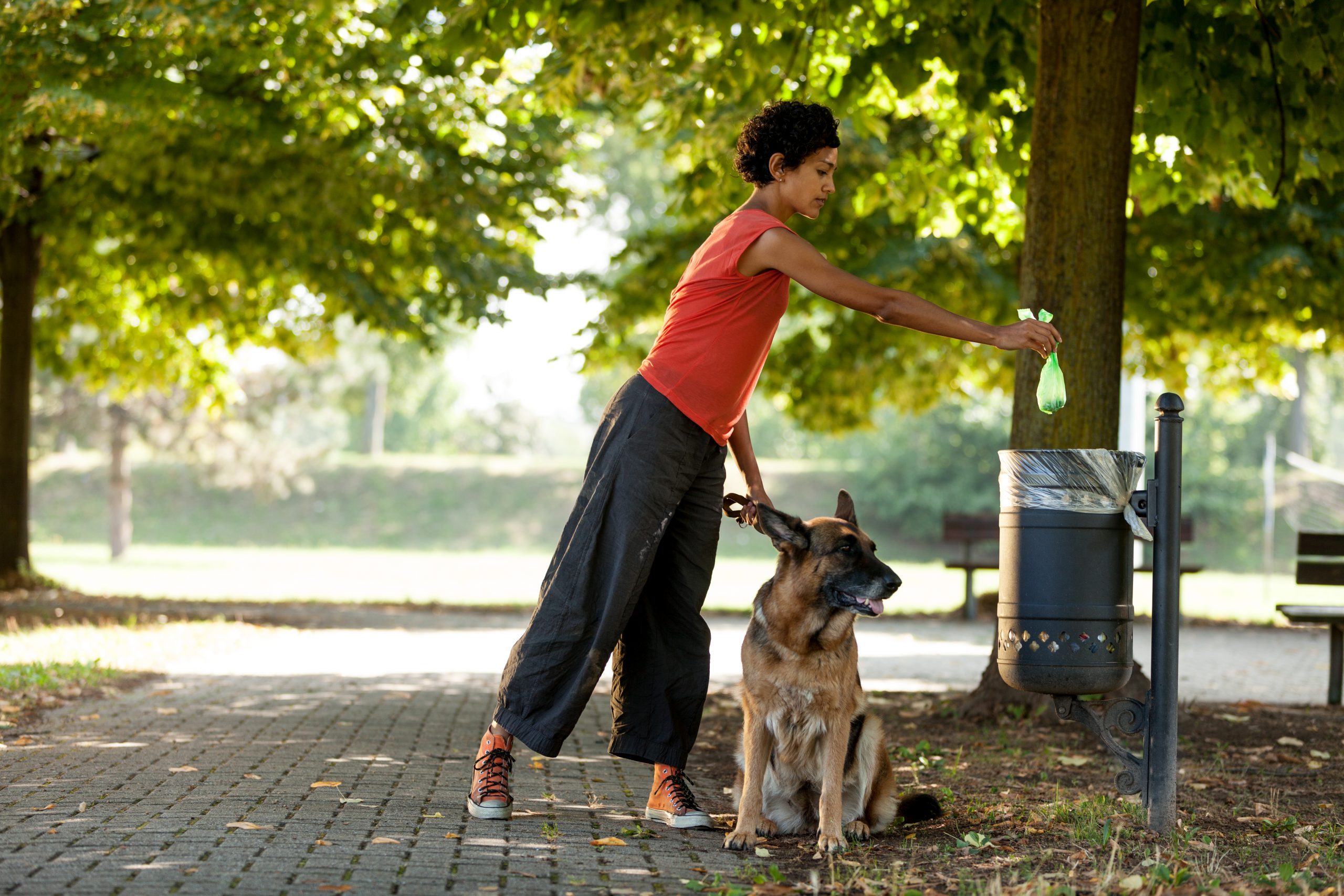How Does Dog Waste Contaminate Our Waterways?
Dogs are undeniably great; they’re cute, they love us unconditionally, and they get us out of the house. And while some dogs are smart enough to learn remarkable commands and do amazing tricks, they rely on responsible pet owners to make sure their waste gets properly cleaned up and disposed of.
Did you know that one gram of dog waste contains 23 million fecal bacteria?
Pet waste that doesn’t get picked up can ultimately end up in our waterways. Urban and stormwater runoff can wash pet waste down storm drains and into streams, creeks, the San Francisco Bay and the Pacific Ocean untreated. Studies have found that roughly 40 percent of Americans don’t pick up after their dogs’ waste. You can help by picking up after your dog 100 percent of the time!
Why does this matter? According to the EPA, pet waste contains bacteria that threaten the health of animals and people, especially children. Diseases that can be transmitted from pet waste include salmonellosis, toxocariasis, and toxoplasmosis. Not picking up after your dog can have some sickly consequences for beach-goers and aquatic animals alike. Bacteria and parasites in dog waste can be transmitted to humans through contaminated soil, water, or even through direct contact. Children who play in parks or streams have an even greater risk of coming in contact with these diseases.
What Can You Do To Help?
Pet waste is one of the largest contributors to water quality problems in San Mateo County—but it’s one that each of us can help correct.
- Bag-it! Always bring plastic bags to pick up after your dog. Don’t forget to throw the bag into a garbage receptacle—leaving bags along trails or in parks is considered littering and is subject to fines. The longer dog waste stays on the ground, the greater the chance for soil and water contamination, so be sure to pick up the droppings promptly! This applies to parks, along trails, and even backyards. BUT, aren’t plastic doggie bags even worse for the environment? NOPE! Runoff carrying untreated dog waste infects our waterways with bacteria that can sicken people and pets, harm aquatic organic, and contaminate water sources. A landfill is lined and contained.
- DO NOT COMPOST PET WASTE! Contrary to popular belief, dog waste is not recommended as a natural lawn fertilizer. While animal manure can in some cases and under carefully managed conditions, make useful fertilizer, parasites carried in dog and cat feces can cause diseases in humans and should not be incorporated into compost piles.
- Don’t forget about your other pets! Make sure to clean up after your dogs, cats, horses, and other household pets. Help keep our waterways and communities clean!
Pet-Friendly Resources
State Parks:
Local Trails:
Dog-Friendly Parks and Areas:
Scoop the Poop Pledge
Sign our pledge and have a chance to win a free dog canister.
